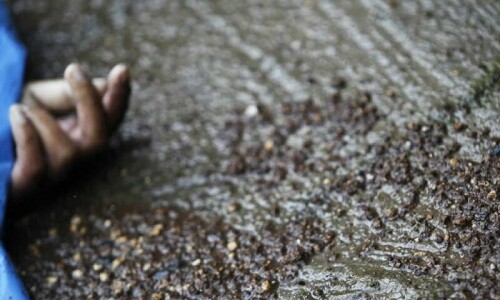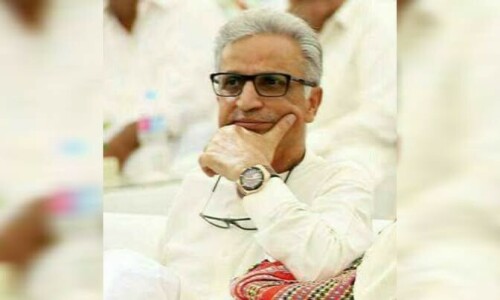ISLAMABAD: After Khyber Pakhtunkhwa (KP), the government on Thursday decided to provide Sehat Insaf Cards to all residents of Azad Jammu and Kashmir (AJK).
The decision was made during a meeting of the National Steering Committee on Sehat Sahulat Programme held at the Ministry of National Health Services (NHS) and chaired by Special Assistant to Prime Minister (SAPM) on Health Dr Faisal Sultan.
The Sehat Sahulat Programme, according to the government, is the biggest social health protection initiative of the country and moving to achieve the mission of a prosperous and healthy nation. The programme is providing services to 8.4 million families in 90 districts of Pakistan and targeting to achieve 12.5 million families. The KP government has already decided to provide health facility to all the CNIC holders of the province.
Dr Sultan informed the meeting that the prime minister had directed for universal health coverage of all permanent residents of Azad Jammu and Kashmir as registered in the National Database and Registration Authority (Nadra).
The services which are available under the Sehat Insaf Card include free of cost open heart surgeries, insertion of stents, management of cancer, neurosurgical procures, burn management, accident management, dialysis, intensive care management, deliveries and C-section. Over one million individuals have visited hospitals up till now and 299,000 have been treated for various diseases.
The programme will also provide Rs1,000 transportation cost to its beneficiaries at the time of their discharge from hospital. There is also a provision of burial support of Rs10,000 per death (if occurs in a hospital). There is the facility of inter-provincial/inter-district portability for availing free of cost services from any empanelled hospital in Pakistan.
Through Sehat Insaf cards, persons with disabilities and their registered families as well as transgenders are also provided with similar benefits without any poverty scoring.
The chief executive officer of the programme informed the SAPM that as per the direction of the prime minister, there is a stringent monitoring mechanism which is being maintained through feedback calls from beneficiaries, which showed 97 per cent satisfaction rate for the services being provided by empanelled hospitals.
NCOC defers decision to open educational institutions till Sept 7
The National Command and Operation Centre (NCOC) on Covid-19 on Thursday decided to discuss the opening of educational institutions again on Sept 7.
The NCOC held a meeting with a single point agenda of opening of educational institutions from university to school levels. Representatives of provinces and educational institutions, including public, private and madressahs, participated in the meeting.
According to a statement, the participants were informed about the risk and challenges involved after opening of educational institutions as it involved children of all ages. They were informed that these challenges were mapped after hectic and lengthy consultations with international experts, academia and think tanks particularly who were working on educational sector opening.
Federal Minister Education and Professional Training Shafqat Mehmood said final decision would be taken on Sept 7 after consensus and input from all stakeholders.
Educational institutions should be opened on top to bottom approach (university, college, high schools etc) on a rotation basis. Timings of various institutions be staggered by suspending various activities which involve mass gatherings, including co-curricular activities.
It was decided that educational institutions must ensure all Covid-19 protocols and prepare accordingly before a final decision.
Dr Faisal Sultan told the participants that while the eventual opening would be undertaken, NCOC and the Ministry of Health would monitor the disease statistics on a daily basis, particularly to assess the likely impact of tourism and Muharram on the opening of the educational institutions.
He said an information technology-based monitoring mechanism be developed to ensure health guidelines and Covid-19 containment measures.
Representatives from various institutions gave their input on school opening measures and assured the forum of compliance of health guidelines particularly wearing of face masks, social distancing and hand washing protocols.
Published in Dawn, August 29th, 2020













































